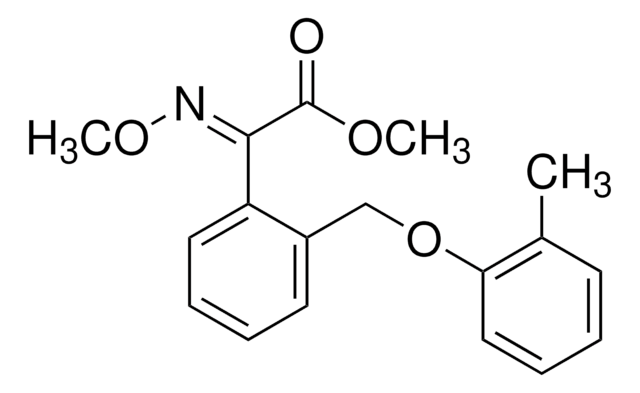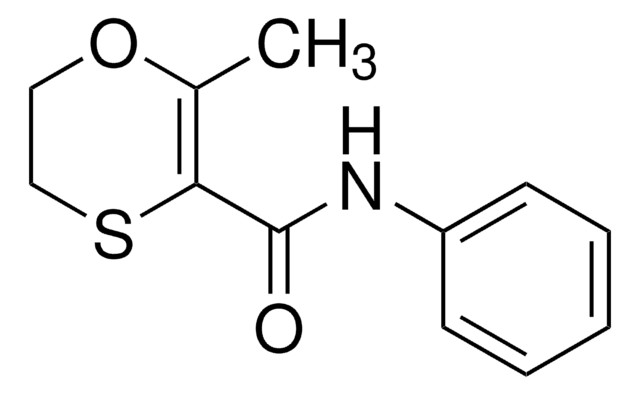N11203
Bifenthrin
analytical standard
Sinónimos:
3-[(1Z)-2-Chloro-3,3,3-trifluoro-1-propenyl]-2,2-dimethylcyclopropanecarboxylic acid (2-methylbiphenyl-3-yl)methyl ester
About This Item
Productos recomendados
grade
analytical standard
packaging
ampule of 100 mg
manufacturer/tradename
Chem Service, Inc. PS-2003
technique(s)
HPLC: suitable
gas chromatography (GC): suitable
format
neat
SMILES string
CC1=C(COC([C@@H]2[C@H](/C=C(Cl)/C(F)(F)F)C2(C)C)=O)C=CC=C1C3=CC=CC=C3
InChI
1S/C23H22ClF3O2/c1-14-16(10-7-11-17(14)15-8-5-4-6-9-15)13-29-21(28)20-18(22(20,2)3)12-19(24)23(25,26)27/h4-12,18,20H,13H2,1-3H3/b19-12-/t18-,20-/m0/s1
InChI key
OMFRMAHOUUJSGP-IRHGGOMRSA-N
¿Está buscando productos similares? Visita Guía de comparación de productos
application
signalword
Danger
Hazard Classifications
Acute Tox. 2 Oral - Acute Tox. 3 Inhalation - Aquatic Acute 1 - Aquatic Chronic 1 - Carc. 2 - Skin Sens. 1 - STOT RE 1
target_organs
Nervous system
Storage Class
6.1A - Combustible acute toxic Cat. 1 and 2 / very toxic hazardous materials
wgk_germany
WGK 3
flash_point_f
329.0 °F - closed cup
flash_point_c
165 °C - closed cup
Elija entre una de las versiones más recientes:
Certificados de análisis (COA)
Lo sentimos, en este momento no disponemos de COAs para este producto en línea.
Si necesita más asistencia, póngase en contacto con Atención al cliente
¿Ya tiene este producto?
Encuentre la documentación para los productos que ha comprado recientemente en la Biblioteca de documentos.
Nuestro equipo de científicos tiene experiencia en todas las áreas de investigación: Ciencias de la vida, Ciencia de los materiales, Síntesis química, Cromatografía, Analítica y muchas otras.
Póngase en contacto con el Servicio técnico










